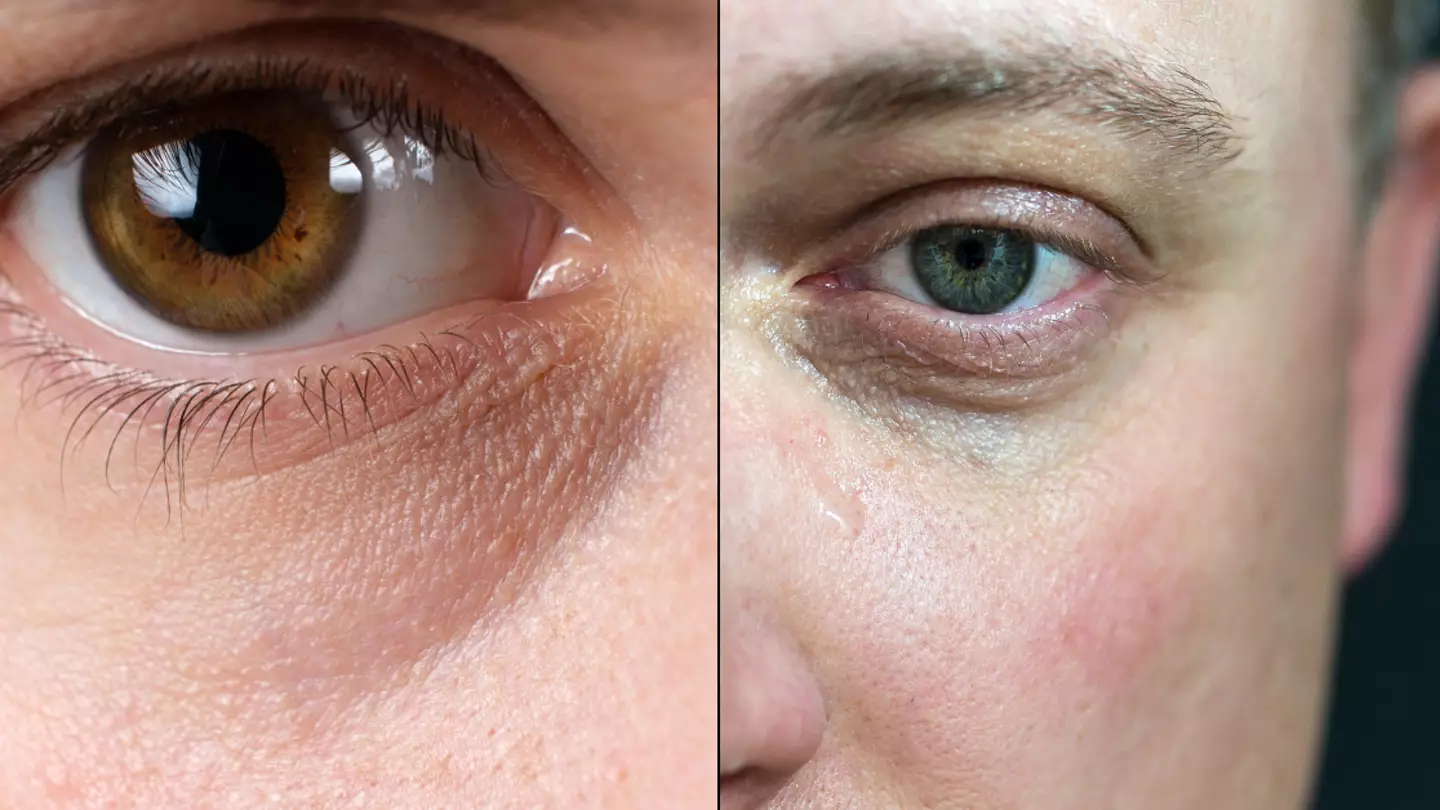
Dermatologists have outlined the eight possible reasons behind having dark circles around your eyes
Waking up and seeing dark circles under your eyes in the mirror can be a real shock, but an expert says it's not just because you're tired.
A lot of individuals believe that insufficient or poor-quality sleep affects your appearance, but that's not entirely accurate. Additionally, social media can create the impression that there's an easy fix for this issue, but reality is often more complex.
Dark circles are a tricky problem that can happen for many reasons, and some skin doctors have pointed this out.

It's not just tiredness that causes dark circles (Getty Stock Photo)
What is the main cause of dark circles around your eyes?
Dermatologist Morgan Rabach, MD, explains that dark circles can arise for various reasons. She notes that the skin beneath our eyes is quite thin, which can make blood vessels more apparent. Additionally, shadows may contribute to their appearance if the area under the eyes is hollow or if the skin darkens.
The health expert says that every reason for dark circles under the eyes needs a different way to treat it. Together with some other skin specialists, they pointed out eight reasons for dark circles to help us understand them better.
Age
One big reason for this might be that we lose some fullness in our faces as we get older, kind of like what happens as time goes by.
Courtney Rubin, MD, shared with Byrdie that beneath our eyes lies a special cushion of soft tissue called the SOOF, or suborbicularis oculi fat.
As time goes by, the cushion of tissue under our eyes gets smaller and drops down, which makes the area look less full and creates a shadow. This is one of the main reasons people get dark circles.
Dr. Reza Tirgari, a cosmetic surgeon, noted that with aging, the skin beneath the eyes becomes thinner. This increased transparency allows the small blood vessels underneath to show through, resulting in a darker appearance. This is one reason why some individuals opt for fillers.
Dehydration
It might seem like a common saying, but it's true that water actually makes up 60 percent of our bodies.
“If you are seriously dehydrated, your body's tissues will start to shrink, including your skin and the delicate tissue under the eyes,” Dr. Rubin revealed.
It's a good idea, especially if you're in your 20s, to drink plenty of water before having any cosmetic procedures. Just remember, coffee and tea don't really help with staying hydrated!

A hectic schedule can bring about dark circles (Getty Stock Photo)
Lack of sleep
A lot of people think that dark circles are mainly caused by lack of sleep, and this can affect anyone, no matter how old they are.
Dr. Tirgari says that going to bed at the same time every night is really helpful. It helps your body get used to a regular sleep pattern, which can stop you from having trouble sleeping.
She also added that a hectic or restless schedule can lead to dark circles.
Strain on your eyes
According to dermatologist Alan Parks, MD, it's not only your eyesight that gets impacted. He explains that when you have trouble seeing and squint your eyes, it can also change how your under-eye area looks. This happens because the blood vessels under your skin get bigger, making dark circles more noticeable.
He suggested that anyone who is concerned about this should have their eye prescription checked, since putting a lot of strain on your eyes all the time isn't healthy.
Possible contact dermatitis
Dr. Rubin explains that if the skin under your eyes is really thin, it can be a delicate spot for people with contact dermatitis, which means they might get irritated by personal care products.
It seems that it can cause changes in the skin after inflammation, known as ‘post-inflammatory hyperpigmentation.' She explains that this can be treated by doing patch testing, a special skin test that shows which ingredients you might be allergic to.
Seasonal allergies
Dr. Rubin says that when you have allergic conjunctivitis, which is when allergies make your eyes inflamed, rubbing your itchy eyes a lot can cause tiny blood vessels to break and lead to bruises.
“As the bruising heals, pigmented hemosiderin (a component of hemoglobin) is left behind, which causes dark marks under the eyes.”

Eye cream might not always be the answer (Getty Stock Photo)
An underlying medical condition
Dr. Tigari points out that dark circles beneath the eyes could be associated with various health concerns. He notes that conditions such as anemia, malabsorption syndromes, poor nutrition, vitamin deficiencies, hypothyroidism, and certain metabolic syndromes may all play a role in this issue.
“If these persist even with treatment, it's always a good idea to have a thorough exam and get labs with your primary physician.”
It's all in your genes
Your genetics may play a significant role, which can be disappointing. According to Dr. Alan Parks, “Genetics is one of the most prevalent and challenging problems to address, particularly in cases of periorbital hyperpigmentation.”
You can always find ways to reduce the look of dark circles under your eyes. For example, using eye creams that have ingredients like caffeine, retinol, algae, and hyaluronic acid can really help!
How do you treat dark circles?
Although the primary concerns can be addressed with a quick visit to the doctor, it's crucial to remain hydrated and get enough rest to reduce the likelihood of developing dark circles.
Sadly though, if it's down to age and genes, there may be no straightforward solution, unless you're willing to have some cosmetic work done.
Featured Image Credit: Getty Stock Photos













